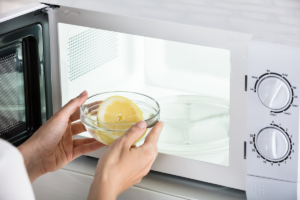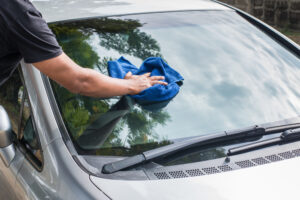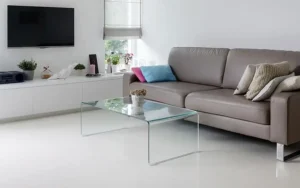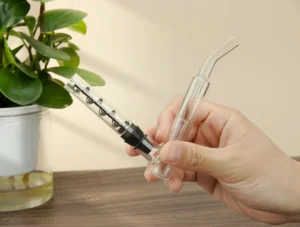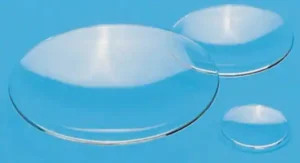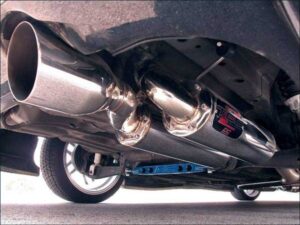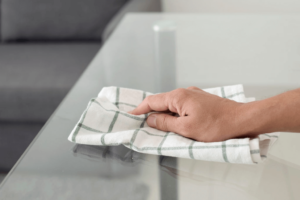If you’re thinking about getting leaded glass windows, you might want to think again. While they may look beautiful, there’s a reason why lead is no longer used in construction. Here’s what you need to know about the dangers of leaded glass windows.
What are leaded glass windows?
Leaded glass windows are made with sheets of glass that have been joined together with lead-based solder. These types of windows were commonly used in homes and businesses before the 1970s, when lead was banned in many construction materials. While leaded glass windows can be beautiful and add a touch of elegance to a room, they can also be dangerous.
The main concern with leaded glass windows is that the lead in the solder can leach out into the surrounding environment. This can be especially problematic if the windows are located in an area where children or pets play. Lead exposure can cause a number of health problems, including brain damage, kidney damage, and even death. If you have leaded glass windows in your home or business, it is important to take steps to protect yourself and your family from exposure.
The dangers of leaded glass windows
While leaded glass windows can be beautiful, they can also be dangerous. The lead in the glass can leach into the surrounding environment, contaminating soil and water. Lead is a neurotoxin that can cause serious health problems, especially in children. If you live in a home with leaded glass windows, it’s important to take steps to protect yourself and your family.
You can minimize your exposure to lead by taking some simple precautions:
-Wet mop or damp wipe surfaces around leaded glass windows regularly to keep dust from spreading.
-Wash your hands thoroughly after contact with leaded surfaces.
-Keep children and pets away from areas where they may be exposed to lead dust.
-If possible, replace leaded glass windows with safer options.
The benefits of leaded glass windows
Leaded glass windows have been used in homes and businesses for centuries. They are prized for their beauty and durability. But what many people don’t realize is that leaded glass windows also offer a number of benefits in terms of safety and security.
Leaded glass is much stronger than regular glass, making it more resistant to breakage. This can be a valuable asset in areas that are susceptible to high winds or severe weather.
In addition, the lead content in the glass helps to make it more difficult for would-be burglars to break into your home or business. The added weight of the lead makes the window less likely to be knocked out by a flying object, and the lead itself makes it more difficult to shatter the glass.
How to safely remove leaded glass windows
If you live in an older home, there’s a good chance you have leaded glass windows. And while they may be beautiful, they can be dangerous — especially to children and pregnant women.
If you plan on removing leaded glass windows, it’s important to do so safely to avoid exposure to lead dust. Here are a few tips:
-Wear protective gear, including a dust mask, gloves and eye protection.
-Wet the window with a sponge or spray bottle filled with water before removing it to prevent the release of lead dust into the air.
-Use a putty knife or other tool to gently pry the window out of its frame.
-Dispose of the window in a heavy-duty plastic bag.
-Clean the window frame with a wet sponge or rag and dispose of any lead paint chips in a heavy-duty plastic bag.
-Wash your hands and face thoroughly with soap and water after removing the window and before eating or drinking.
How to safely install leaded glass windows
Installing leaded glass windows can be a beautiful addition to your home. But if not done correctly, it can be dangerous. Here are some tips on how to safely install leaded glass windows:
-Wear gloves and a mask when working with the glass.
-Use a tape measure to make sure the window opening is the right size for the window.
-Cut the glass to fit the window opening, using a glass cutter and a straightedge.
-Install a sturdy frame around the outside of the window opening.
-Put on gloves and carefully place the glass in the frame.
-Use glazing compound to secure the glass in place and seal any gaps.
-Allow the glazing compound to dry completely before painting or staining the frame.
How to safely dispose of leaded glass windows
While leaded glass windows can be beautiful, they can also be dangerous. If you have leaded glass windows in your home, it’s important to know how to safely dispose of them.
Lead is a toxic metal that can cause serious health problems if it’s ingested or inhaled. Lead poisoning can cause developmental problems in children and is linked to a variety of other health problems in both children and adults.
If you have leaded glass windows, the best way to protect yourself and your family is to have them removed by a professional. This is especially important if you have young children or if you are pregnant.
If you decide to remove the windows yourself, there are a few things you need to do to safety:
-Wear gloves, a dust mask, and eye protection while handling the windows.
-Avoid creating dust by wetting down the area around the window with a hose or bucket of water before starting work.
-Use a hammer or chisel to carefully remove the window, being careful not to create too much dust. Dispose of the window in a heavy-duty bag.
-Thoroughly clean the area where the window was located with soap and water.
How to safely clean leaded glass windows
Lead is a soft, malleable metal that was used extensively in the past for a variety of purposes, including manufacturing household objects such as crystalware, dishes and windows. Although lead is no longer used in new products, many homes and businesses still have leaded glass windows.
Leaded glass windows can be beautiful and add a touch of elegance to any room, but they require special care when cleaning to avoid exposure to lead dust. Here are some tips for safely cleaning your leaded glass windows:
-Wear gloves and a dust mask while cleaning to avoid contact with lead dust.
-Dampen a clean cloth with water and mild dish soap. Gently wipe away any dirt or grime from the surface of the windowpane.
-Rinse the window with clean water.
-Dry the window with a second clean, dry cloth.
-Repeat these steps as necessary to keep your leaded glass windows clean and free of dirt and grime.
How to safely repair leaded glass windows
Lead is a soft, malleable metal that has been used for centuries to make everything from pipes and pottery to dishes and windowpanes. Although lead is no longer used in many products, it can still be found in older homes in the form of leaded glass windows.
Lead poisoning is a serious health hazards, particularly for children, so it’s important to take precautions when working with or around leaded glass. If your home has leaded glass windows, there are some simple steps you can take to repair them safely:
-Wear gloves and a dust mask when working with leaded glass to avoid inhaling any dust or particles.
-Use a wet cloth or sponge to clean the surface of the glass before you begin your repairs; this will help to keep any lead dust from becoming airborne.
-Use only putty or caulk specifically designed for use with leaded glass; other types of materials may not adhere properly and could cause further damage to the window.
-Be sure to follow all manufacturer’s instructions carefully when using any products containing lead.
-When you’re finished with your repairs, wash your hands thoroughly and dispose of any unused material in a sealed container according to local regulations.

